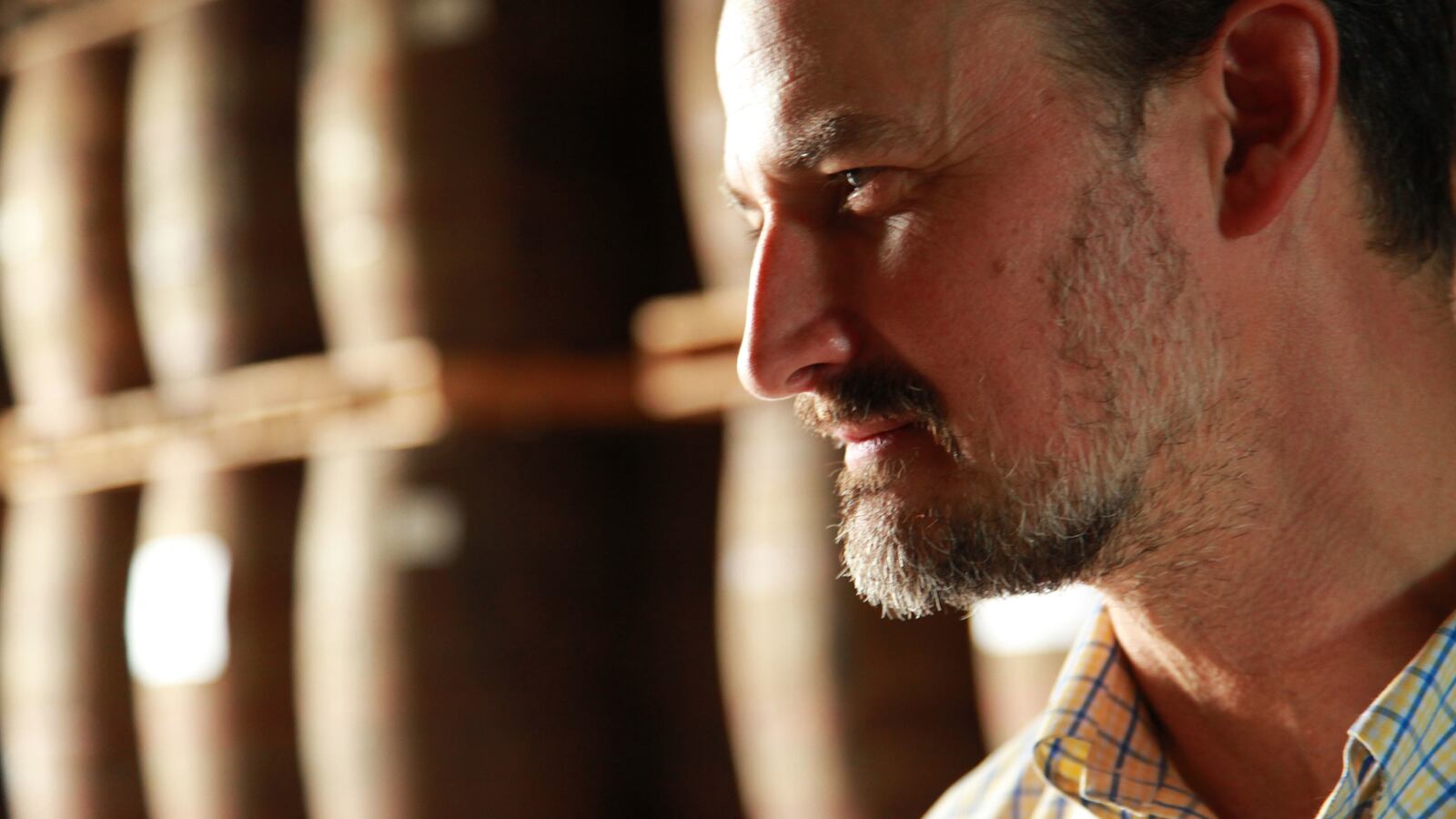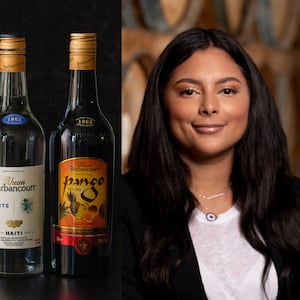The first time I met Roberto Serrallés, he was speaking on a panel about sustainability in the distilling industry. I was stunned. I had never seen a presentation like this at any point in my career. I sat with my mouth agape. I was impressed by his intelligence, kindness and warmth, and also his brutal honesty on the subject.
In less than an hour, the sixth-generation Puerto Rican rum maker talked about energy use, water consumption, waste and the carbon impact of a distillery. This is the sort of information many brands would pay big money to sweep under the rug and he was giving the audience the receipts.
It came as no surprise when I found out later that he has a PhD in environmental science and had taught at the University of Oregon before joining his family’s eponymous liquor company, which produces Don Q Rum.
Far too many companies want to gloss over sustainability with buzzwords and initiatives that create offsets that are merely drops in the proverbial bucket. While Serrallés addressed where and how the most meaningful change towards responsible production can happen in a distillery and laid out a strategy that makes good business sense.
Read on for our honest conversation about sustainability and climate change in the liquor industry.
Campbell: “Over the last few years, we’ve talked a lot about the importance of sustainability and the impact of climate change in the liquor business. I know it is a non-stop thought process for you. What’s on your mind currently in regards to the environment?”
Serrallés: “I’m always thinking of new things and the subject matter is that much more important when you look across the big picture. Planetary sustainability and key capital is something I like to look at. Part of the solution for planetary sustainability will have to be tackled at the industrial level, you know, and how can we make our industry a part of this. And the problem to tackle is the race to the bottom mentality, all mighty competition requires us to not necessarily be more efficient, but necessarily lower costs, right? That’s the current model. But how do we get to these lower costs? And that’s the part that is often very broken.
As a producer we can put solar panels on our aging warehouses, we can reuse our biogas and we can do all these things, but at the end of the day are we getting consumers through these investments? A consumer might see one product against another product and they both provide the same utility to them, but this one is a little cheaper. In general, if they offer the same utility the consumer goes for the lower price. Will they actually hear the message and value the cost of investing in sustainability?
So you can also see not all the pieces and true costs of the goods is being integrated into the sticker price. What’s missing from that equation is externalities and the most important one is what is the price or cost of clean air at a local scale, as well as lower CO2 emissions at the global scale in terms of climate change. Hurricane events and the billions of dollars in costs related to that for the damages are not reflected in the purchase experience. So that’s what I’ve been thinking a lot about lately.”
Campbell: “In my own experience as a former president of a spirits company, I hear so many myths in the business world about what is expensive and what is inexpensive. And I do think that customers want to make good choices and they do want to ‘be able to vote with their dollars,’ but I think companies have a lot more control in that situation than they really want to admit. You’re not always making the choice you think you’re making.
And this is why when people ask me about sustainability in distilled spirits, I think of you. It’s not ‘boardroom sustainability’ that markets something super flashy. It’s not as shiny as having some big display or buzzword, rather it’s real changes that make huge differences in terms of practical production. I love that you bring that real impact mindset to your sustainability approach, in all parts of your life and everything you engage in. You bring a lot of honesty and transparency.”
Serrallés: “I value all efforts to make a difference, but as you say there’s this stuff that’s coming from a marketing boardroom effort, you know, because this is cool and trendy. I’m not passing judgment, you don’t want to end up in any situation in a way in which you were discouraging people from doing the right thing. But I think it’s sort of how do we get through the greenwashing to real meaningful sorts of things. I want to model my goals on sustainability that makes sense because it also makes good economic and business sense. I strongly disagree with this dichotomy that on one hand you have economic development and the other hand you have environmental protection, they are not mutually exclusive at all.
They’re only mutually exclusive because we’ve chosen not to take into account all the benefits that environmental protection does and put a dollar number on that. People want to see products that are trying to do the right thing.”

Campbell: “I think there’s an opportunity in business to be incredibly transformative, both constructive and destructive, based on how you build your company. When someone wants to save water in their home, that’s fantastic. But if a giant corporation decided to save five percent of their water usage, how much of a difference would that make? How many homes does that equate to? I feel the onus really does lie on businesses who are extracting from community resources for their personal profit and gain.
You’ve been very thoughtful in becoming sustainable in a sustainable way. Usually, it can’t be done overnight in one big, massive investment that creates a totally new distillery. It is a process. It is always making it better. It is always taking steps to improve and doing it on a sustainable timeline where you can make it actually happen.”
Serrallés: “Yeah. Sometimes it is one step forward and one step back. It is complicated because it is meaningful. And that’s why one of my lines is always, hey, you know, it is not really a destination but it’s just sort of a process. It’s a commitment to getting better because that’s all that we can do.”
Campbell: “It’s always an ongoing relationship with sustainability.”
Serrallés: “If you go to a board and say, we need to do this thing, because it’s green, they’re going to be like, okay, show me the payback. And so for me, part of the challenges of the journey to sustainability is constantly trying to make sure that it does make sense economically.
Like the solar panels. We like the green part, but it’s going to save you on your evaporation losses and therefore it makes even more sense in the sunny Caribbean. So it’s how do you find those little nuggets? And those are the ones we go at first.”
Campbell: “Yeah, exactly. It’s all in steps and following that thread through is so important. And I definitely know from my experience, sometimes alternative packaging, for example, when you follow that thread through, it’s not quite as impactful as many people think it is. It’s what bartenders see and touch, so they ask frequently about it. I might get asked about my packaging a lot, but in the 17 years of my spirits journey I have never been asked about our fuel source for our boiler. I have barely been asked about water usage or water recovery techniques, but everyone wants to talk about packaging. I understand that’s what is visible, but the impact is totally different.”
Serrallés: “You totally hit it. It’s that visible versus the invisible. And I think a lot of this stuff we work with is not always stuff people care about. I mean, I go to a talk and I always say this is the totally unsexy side of rum. I know you guys want to have cocktails and you want to look at bottles, but this part is really important, it’s like water usage and oil usage. It’s all that stuff people don’t want to talk about, but I want to make it visible.”
Campbell: “And it’s like you said, because we don’t count so many of the important long-term, meaningful financial benefits of what is truly green, I think a lot of companies approach it as marketing. That’s where the payoff is for them. Opposed to being like this is the right thing to do and we’ll always be more successful doing the right thing.”
Serrallés: “Exactly. You know, one of the other things that I’ve been thinking a lot about is that in this world [a lot] has to do with capitalism as a working system. I think if we could better the data, the better it would work for consumers and for environmental goals. So, let’s just talk solar panels for that matter or wind energy and the way financing is structured. Say you want to buy electricity at a low cost over a long time and it may seem to cost less when spread across your bottle cost than investing in solar panels, which have a large upfront cost. But remember you have to account for there being no inputs as you move forward once the solar panel is paid off. This is a major cost control. Once you pay off the solar panel over time, perhaps at the same rate you would have for electricity, at some point it is paid in full and no longer costs you anything. It’s almost like solar and renewables for industry need to kind of work on a slightly different financing model. And I’m not sure what that is. I just kind of identified the problem. I’m sure people are thinking about it, but it really made me scratch my head like, huh, I see something here. I see something that’s not working in our favor but could be changed.”
Campbell: “Oh yes. If you mimic the regular expenses of the dirty resource then at some point that expense evaporates, but the resource keeps coming...that is huge!”
Serrallés: “Basically as you can monetize it and you get the business benefits, then you can pay off a little more. So it’s kind of like an inverted sort of organization table. I still haven’t gotten it exactly how I want, it’s a fresh thought and it just seems to me that there’s opportunity there.”
Campbell: “I find so much value in what you guys are doing and what you are willing to share. You’re trying to get it right. You really are the person I think of as being an honest and transparent champion of these issues.”
Serrallés: “But hey, we’re just starting.”
Interview has been condensed and edited.








